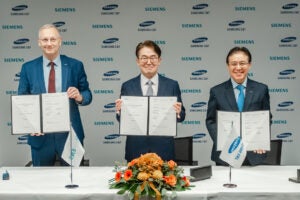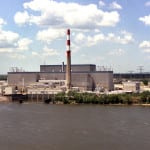A bipartisan group of Illinois legislators have introduced bills that propose a market-based solution to curb carbon emissions and ensure continued operation of the state’s nuclear power plants.
The bills SB 1585 and HB 3293 introduced in the state Senate and House would enact the Illinois Low Carbon Portfolio Standard. That measure, like a renewable portfolio standard, would require the state’s two large investor-owned utilities—Exelon-owned ComEd and Ameren Corp.—to buy low-carbon credits to match 70% of electricity used on the distribution system. Qualified sources include nuclear, clean coal, solar, wind, hydro, tidal, and wave power.
The Low Carbon Portfolio Standard is one of five policy options recommended in a multiagency report released this January to address issues relating to the premature closure of the state’s nuclear power plants. The report was prepared for the Illinois House of Representatives as a measure to fulfill the May 2014–adopted HR 1146. In addition to the Low Carbon Portfolio Standard, it recommends “relying on purely market and external initiatives to make corrections,” establishing a cap-and-trade program, imposing a carbon tax, or adopting a “sustainable power planning standard.”
Most of Illinois’ power is generated by its six nuclear power stations, all owned by Exelon. However, Exelon has warned that it may be forced to shutter as many as 10 nuclear power plants nationwide because they are unprofitable, including three in Illinois: Byron, Clinton, and Quad Cities.
About 43% of the state’s power comes from coal-fired facilities. But the House report notes that fossil fuel prices are “highly volatile and unpredictable,” and the Illinois Renewable Portfolio Standard “is not functioning as well as intended.” It also claims that the gross impact of the state’s nuclear plants’ closure would total about $1.8 billion annually in lost economic activity.
Exelon, which has lobbied against the plants’ closure, backs the bills introduced last week. The company said in a statement that the legislation includes safeguards to protect consumers similar to those for Illinois’ other clean energy programs. “For example, a consumer price cap would limit the impact to a 2.015 percent annual increase compared to 2009 rates, or about $2/month for the average Illinois residential electricity customer, less than the increase customers would face if the nuclear plants close early,” it said. “In addition, if wholesale electric prices exceed a certain level, any excess revenues would be rebated to all Illinois electric customers on their bills.”
The legislation also includes a provision that the program will end on Dec. 31, 2021, or when Illinois implements a program to comply with the Clean Power Plan.
—Sonal Patel, associate editor (@POWERmagazine, @sonalcpatel)










